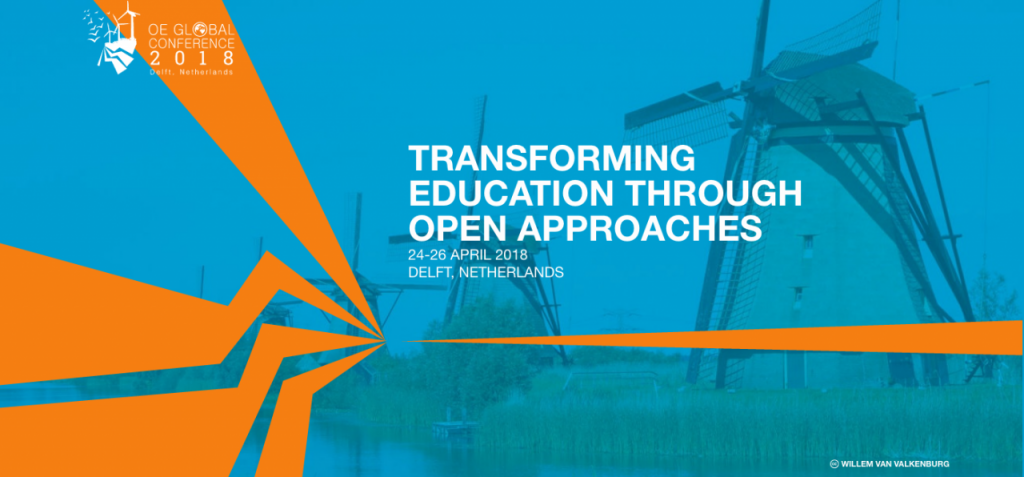Posted in June 2017
OE Global 2018: call for proposals opened
As you might have seen or heard, the Open Education Consortium and TU Delft will host OE Global 2018 conference at TU Delft Netherlands between 24 and 26 April 2018. We are exited to announce that the theme will be Transforming Education through Open Approaches. The website is now live and the call for proposals is now open.
“The Open Education Global Conference is where the world meets to discuss how opening education helps achieve universal access, equity, innovation and opportunity in education. The OE Global conference is the most internationally diverse conference devoted exclusively to open education, attracting researchers, practitioners, policy makers, educators and students from more than 35 countries to discuss and explore how Open Education advances educational practices around the world.”
Call for proposals
The call for proposals enables you to submit proposals to offer ‘presentations‘, ‘panel sessions‘, ‘action labs‘ and ‘poster sessions‘, and there is a journal publication opportunity in the open access journal ‘Open Praxis’. Proposals need to fit tracks mentioned below. Learn more at http://conference.oeconsortium.org/2018/call-for-proposals/
Conference tracks:
- Open Connections
Connecting different worlds of Open, such as open access, open science, open source software; strengthening our reach and increasing impact through collaboration. - Open Education Research
Research on practices to mainstream openness in education; evidence of impact, studies of educational transformation using open modalities. - Innovation through opening traditional practices
MOOCs as an accelerator for open & online education, opening teaching practices through open textbooks, openly licensed student work as OER. - Policies & strategies for Open Education
Setting priorities and conditions for mainstreaming Open Education, designing effective policies and strategies, connecting open education policies to larger policy movements such as the UN Sustainable Development Goals and the Open Government Partnership. - Institutionalizing Open Education
Intellectual property arrangements at schools and universities; reward and recognition systems; institutional conventions; disciplinary norms; types of in-service training for Open Education; impact on hiring practices; challenges and barriers for mainstreaming openness; openness as a tool for community outreach, enhancing leadership in open education. - Tools & Technologies for Open Education
Supporting the development and use of tools for OER production, hosting, use and remix, authoring OER, conventions for tagging OER, hosting derivative works, citation conventions for derivative works, standards for remixable formats. - Open Educational Practices/Open Pedagogy
New approaches to teaching and learning based on openness, personalization of education, OER-enhanced teaching, facilitating informal learning with open resources, course redesign with a focus on open. - Connecting Open Education to formal education
Accelerating adoption of open education, recognition and rewards for open education adoption, alignment of open education values to institutional mission, accreditation of open education, recognition of learning through open means. - Student perspectives
Student-led initiatives to advance open education and research, impact of open for students, student perceptions of open education, students as open education leaders.

